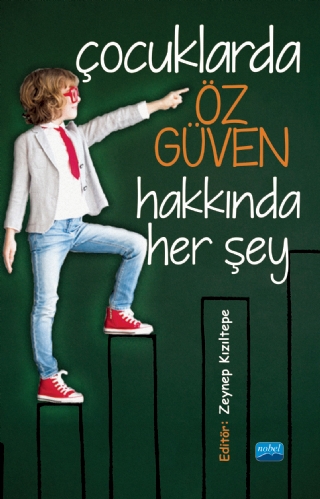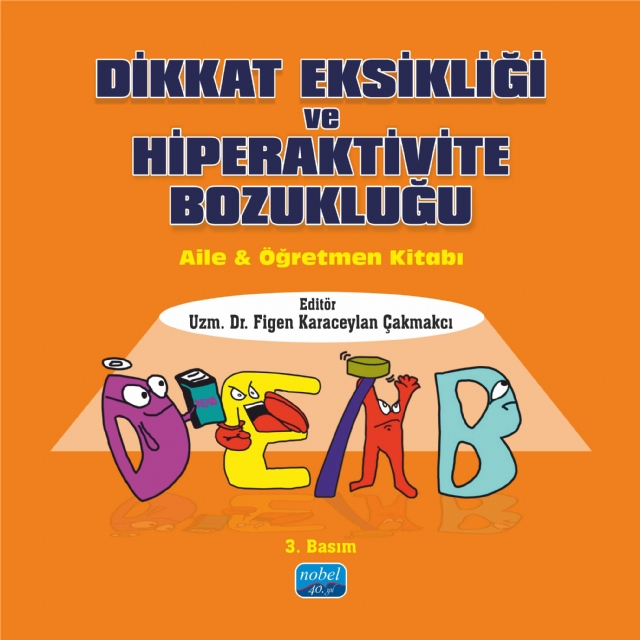Parent-Child \ 1-1

Addiction is affecting our lives like a growing monster. There is no one in our family who can say that it does not happen. What are the types of addictions? How do cigarette, alcohol, substance and internet addiction develop? Even if you control the family, it is difficult to control the school, dormitory, neighborhood, friends, in short, the environment. Is it preventable? Yeah. How? How will we protect our children, what are our duties? These are the questions many parents seek answers to. So what will the parents do? What will they not do? We tried to produce a work that could answer these questions of parents and guide parents in crisis situations. The idea for this book was born when the paths of experts from different fields who work with substance addicts in their professional practice crossed in a project for substance addicts. During the project process, interviews were held with many drug addicts and their families. Internet addicted individuals were supported. Cognitive-behavioral-based group and individual therapy sessions were conducted. The experiences gained were filtered through the examination of scientific publications and works, and were compiled into a book in an understandable language with the aim of guidance. The main purpose of this book you hold in your hands is to increase the awareness of you, parents, by revealing the effects of the attitudes and behaviors of parents or other family members on the perception of self and the outside world formed in the world of children and young people, and how these increase their addiction potential, and by revealing concrete events in this process. .

How to raise a self-confident child? How to develop self-confidence? How can we teach our children self-confidence? When our child encounters failure in school life, what can we do so that he can overcome it on his own and his self-confidence is not damaged? What are the responsibilities of parents in raising a self-confident individual? What are the basic principles of raising self-confident, self-sufficient, leader children? In our book, valuable scientists discussed the answers to all these questions within the framework of their expertise; shared their information with us.
Among the topics of our book; how and under what conditions self-confidence develops in the family and at school; There are reasons for the differences in self-confidence among children, what we need to do to gain self-confidence in our children in a balanced way. In addition, in our book, with an overview of the subject of self-confidence, self-confidence in the preschool period, the relationship between sports and self-confidence, self-confidence and awareness, self-confidence and critical thinking, self-confidence in art and mathematics, the connection between self-confidence and well-being and the relationship between self-confidence and well-being. Finally, the excess of self-confidence is included with details, examples and advice to families.
Among the topics of our book; how and under what conditions self-confidence develops in the family and at school; There are reasons for the differences in self-confidence among children, what we need to do to gain self-confidence in our children in a balanced way. In addition, in our book, with an overview of the subject of self-confidence, self-confidence in the preschool period, the relationship between sports and self-confidence, self-confidence and awareness, self-confidence and critical thinking, self-confidence in art and mathematics, the connection between self-confidence and well-being and the relationship between self-confidence and well-being. Finally, the excess of self-confidence is included with details, examples and advice to families.

“Attention Deficit Hyperactivity Disorder” (ADHD) is a neuropsychiatric disorder that can disrupt an individual's social life, academic life and family relationships. Although it is a disease that can completely change the future of the child if it is not treated and intervened correctly, satisfactory answers begin to emerge as a result of the right approach and appropriate interventions.
In my 20-year career as a Child and Adolescent Psychiatrist, I have experienced many times that only drug therapy is not sufficient in the treatment of Attention Deficit and Hyperactivity Disorder. The fact that family attitudes and the interventions of the teacher in the classroom are as important as psychopharmacological treatment has motivated me to write such a book.
With this book, it is aimed to inform about the mistakes that we know to be true about Attention Deficit and Hyperactivity Disorder, which is heard by everyone and perhaps defined as today's fashion disease. In addition, it is aimed both to ensure that children with ADHD are understood and to strengthen effective behavior management for families and teachers by providing accurate information and tips to our families and teachers about the relationship between ADHD and learning, which causes misunderstandings and prejudices.
We hope that this book, which offers solutions suitable for the needs of children who are our future, will be a useful resource for everyone who reads it.
In my 20-year career as a Child and Adolescent Psychiatrist, I have experienced many times that only drug therapy is not sufficient in the treatment of Attention Deficit and Hyperactivity Disorder. The fact that family attitudes and the interventions of the teacher in the classroom are as important as psychopharmacological treatment has motivated me to write such a book.
With this book, it is aimed to inform about the mistakes that we know to be true about Attention Deficit and Hyperactivity Disorder, which is heard by everyone and perhaps defined as today's fashion disease. In addition, it is aimed both to ensure that children with ADHD are understood and to strengthen effective behavior management for families and teachers by providing accurate information and tips to our families and teachers about the relationship between ADHD and learning, which causes misunderstandings and prejudices.
We hope that this book, which offers solutions suitable for the needs of children who are our future, will be a useful resource for everyone who reads it.

Every individual is exposed to verbal and nonverbal messages given by their parents or parent figures since childhood. Some accept these messages as they are, while others reject them or vice versa. In this direction, people can develop many behaviors such as rebelling, adapting and self-criticism.
This book aims to make the person discover himself by taking him on a journey in his inner world. At the same time, it makes it easier for oneself and others to notice interpersonal communication styles, and in this direction, it shows a way for the development and change of the person. It offers keys to help a person understand the causes of conflicts with himself and others and to resolve these conflicts.
If you are wondering the answers to the questions below, you can feel better and take a step towards a more free life with this book.
• Do you want everything to be perfect, including yourself?
• Do you always see yourself as right but the people in front of you wrong?
• Do you suddenly become a victim while blaming someone?
• Do you always feel incomplete, but do you consider other people as better than yourself?
• No matter how hard you try, can't you reach the point you want?
• Do you exhibit the same behavior patterns in the face of different events, even though you don't want it?
• Do you often try to please others, ignoring your own needs?
• Do you have difficulty in understanding the other person in your communications?
• Do you always have the same problems and feel similar feelings in your communication with different people?
This book aims to make the person discover himself by taking him on a journey in his inner world. At the same time, it makes it easier for oneself and others to notice interpersonal communication styles, and in this direction, it shows a way for the development and change of the person. It offers keys to help a person understand the causes of conflicts with himself and others and to resolve these conflicts.
If you are wondering the answers to the questions below, you can feel better and take a step towards a more free life with this book.
• Do you want everything to be perfect, including yourself?
• Do you always see yourself as right but the people in front of you wrong?
• Do you suddenly become a victim while blaming someone?
• Do you always feel incomplete, but do you consider other people as better than yourself?
• No matter how hard you try, can't you reach the point you want?
• Do you exhibit the same behavior patterns in the face of different events, even though you don't want it?
• Do you often try to please others, ignoring your own needs?
• Do you have difficulty in understanding the other person in your communications?
• Do you always have the same problems and feel similar feelings in your communication with different people?

One of the traumatic experiences in childhood and adolescence is "bullying" behaviors. Bullying behaviors of various types (verbal, physical, emotional, racist, hiding, behavior disrupting, taking/destroying something belonging to someone else and sexual) seen at school and in virtual environments adversely affect the social, emotional and psychological development of children and adolescents. and cause legal problems.
These negative effects of bullying behaviors are not limited to childhood and adolescence, but it is seen that they negatively affect important personality traits such as self-esteem, self-confidence, psychological resilience, psychological well-being and feelings of love, respect, tolerance and trust in bilateral human relations.
In this work, the types, causes and consequences of bullying behavior, which is an important obstacle to individual development and positive bilateral human relations, are discussed in detail, and a model for the prevention of these behaviors with empathic skills is presented. With this book, besides academicians and practitioners (school psychological counselor, child and adolescent psychologist, classroom guidance teacher) who will work on bullying; It is aimed to help school administrators, branch teachers and parents develop awareness about the types, causes and consequences of bullying behavior.
These negative effects of bullying behaviors are not limited to childhood and adolescence, but it is seen that they negatively affect important personality traits such as self-esteem, self-confidence, psychological resilience, psychological well-being and feelings of love, respect, tolerance and trust in bilateral human relations.
In this work, the types, causes and consequences of bullying behavior, which is an important obstacle to individual development and positive bilateral human relations, are discussed in detail, and a model for the prevention of these behaviors with empathic skills is presented. With this book, besides academicians and practitioners (school psychological counselor, child and adolescent psychologist, classroom guidance teacher) who will work on bullying; It is aimed to help school administrators, branch teachers and parents develop awareness about the types, causes and consequences of bullying behavior.

It is obvious that the presence of a child with special needs at home affects all family members. The financial and moral efforts of parents to support the developmental processes of their children can sometimes lead to very tiring experiences. During this time, the needs of siblings with normal development also appear, but these needs can be ignored. It should not be forgotten that having a sibling with special needs can affect a child with normal development from career choice to character. When the domestic and international literature is examined, it is seen that support groups, psychological counseling and guidance activities are mostly focused on parents, but there is not much work on siblings. The book "Living with My Special Sister", whose main purpose is to fill this gap, includes a psychoeducation program to support secondary and high school students with special needs siblings in their problems, as well as psychological counselors, psychologists, special education specialists who work/will work in the field within the scope of rehabilitation counseling. and aims to be a guide for social workers. In the five different chapters in the book, a content that will provide clues about both the social perspective and the emotions experienced by family members and their coping methods is aimed. This study, which is planned without forgetting that the sibling with normal development, as well as the parents, has a common denominator, will further strengthen the family system.

“My teachers; They said my mind was slow, that I was antisocial, and that I'd be dazed by my stupid dreams until I died."
Albert Einstein – Scientist
Specific Learning Disability (SLD); It is a neurobiologically based disorder that is often noticed with the beginning of the child's academic life, but if it is not detected and intervened by specialists, its lifelong effect compels the person to struggle in all areas of his life, and genetic and environmental factors are effective. The definition of "DYSLExia" is used more often than "Specific Learning Disorder", as it is often defined as only the difficulty experienced in the "reading" skill.
Although it is sometimes defined as "disorder", sometimes "disease", sometimes "difficulty", sometimes "difference", it is a condition independent of intelligence that seriously affects both social and academic life of the individual, but in some cases it is a mis-perceived "intelligence retardation". is a hassle.
ÖÖG; Since it is a difficulty that affects language development and use, verbal and written expression, literacy and mathematics skills, it can lead to school failure and additional school adjustment problems. Considering the importance of school life in the child's mental development, when not correctly detected and intervened, the accompanying Attention Deficit and Hyperactivity Disorder, Anxiety Disorders and Behavioral Disorders are often overlooked comorbid conditions and pave the way for the child to experience emotional trauma.
As a result of nearly 10 years of experience and experience, it was decided to write this book. Practical practices of a team of Child and Adolescent Psychiatrists and Child Psychologists were shared. I hope it will be used as a reference book about what are known to be true about SLD, the importance of early detection and correct intervention, and what the legal rights of the child with SLD are…
Albert Einstein – Scientist
Specific Learning Disability (SLD); It is a neurobiologically based disorder that is often noticed with the beginning of the child's academic life, but if it is not detected and intervened by specialists, its lifelong effect compels the person to struggle in all areas of his life, and genetic and environmental factors are effective. The definition of "DYSLExia" is used more often than "Specific Learning Disorder", as it is often defined as only the difficulty experienced in the "reading" skill.
Although it is sometimes defined as "disorder", sometimes "disease", sometimes "difficulty", sometimes "difference", it is a condition independent of intelligence that seriously affects both social and academic life of the individual, but in some cases it is a mis-perceived "intelligence retardation". is a hassle.
ÖÖG; Since it is a difficulty that affects language development and use, verbal and written expression, literacy and mathematics skills, it can lead to school failure and additional school adjustment problems. Considering the importance of school life in the child's mental development, when not correctly detected and intervened, the accompanying Attention Deficit and Hyperactivity Disorder, Anxiety Disorders and Behavioral Disorders are often overlooked comorbid conditions and pave the way for the child to experience emotional trauma.
As a result of nearly 10 years of experience and experience, it was decided to write this book. Practical practices of a team of Child and Adolescent Psychiatrists and Child Psychologists were shared. I hope it will be used as a reference book about what are known to be true about SLD, the importance of early detection and correct intervention, and what the legal rights of the child with SLD are…